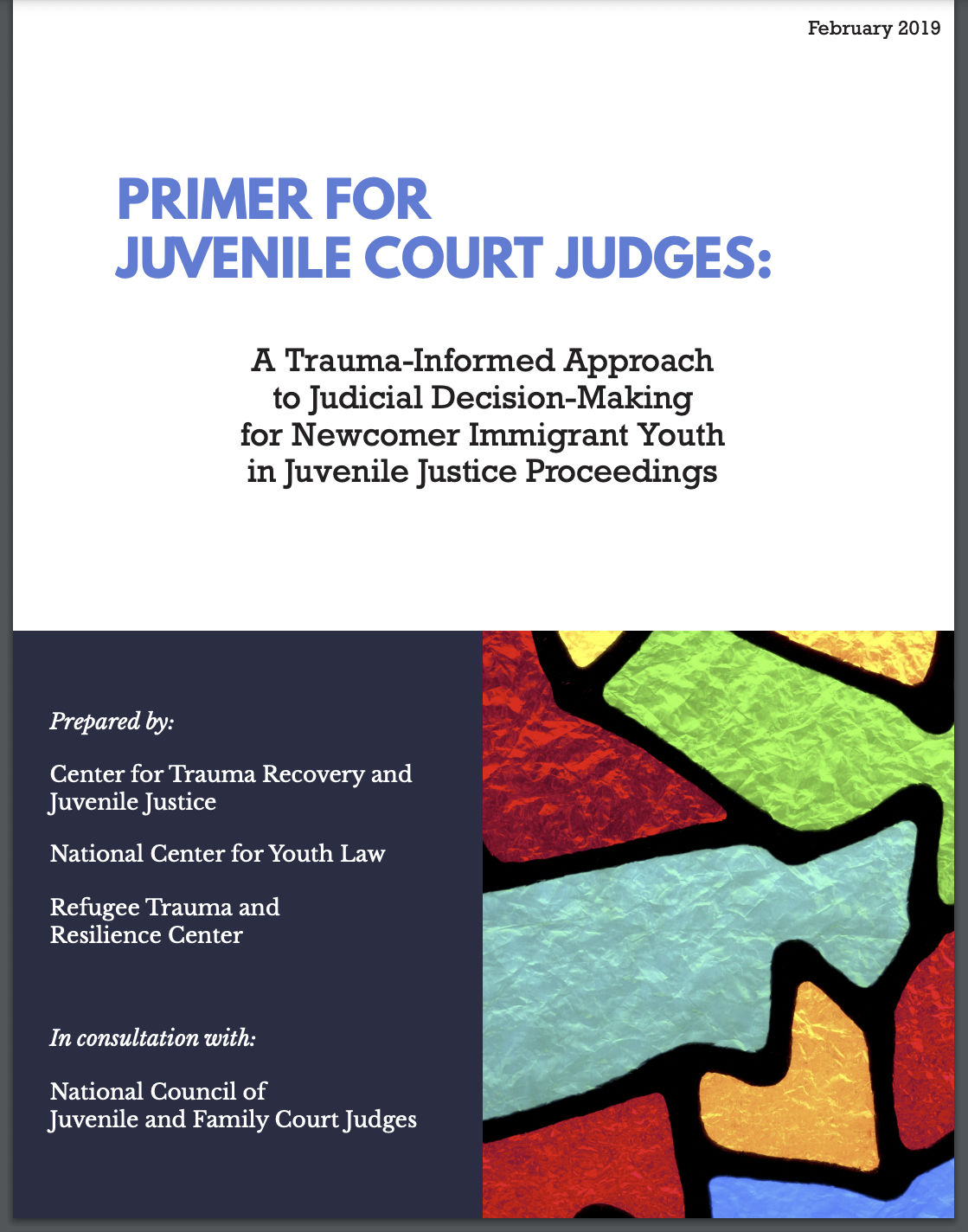Resource For Juvenile Court Judges Highlights Effects Of Trauma On 'Newcomer Immigrant Youth’
Refugee children, children seeking asylum, and unaccompanied children face significant adversity during their journey and upon their arrival to the U.S. The challenges for this group, collectively referred to as “newcomer immigrant youth,” include threats to survival, mass violence, poverty, separation from loved ones, hazardous travel, isolation, discrimination, and many others. These adverse experiences compound and exacerbate the negative effects of trauma that children may have experienced prior to their migration to the U.S. As a result of their experiences, newcomer immigrant youth often live in survival mode in order to protect themselves and their families.
These factors contribute to newcomer immigrant youth being at particular risk of coming into contact with law enforcement and the juvenile justice system, placing judges in a unique position to support these youth.
Recognizing this situation, the National Center for Youth Law co-authored multiple resources to help judges better understand how trauma impacts newcomer immigrant youth and the ways in which the juvenile court system can help support these children.
These resources include:
- Primer for Juvenile Court Judges: A Trauma-Informed Approach to Judicial Decision-Making for Newcomer Immigrant Youth in Juvenile Justice Proceedings (published Feb. 2019);
- Bench Card for Juvenile Court Judges: a supplement to the Primer for Juvenile Court Judges; and
- A webinar titled “A Trauma-Informed Approach for Newcomer Immigrant Youth.”
A closer look
As a result of their experiences, newcomer immigrant youth often live in survival mode in order to protect themselves and their families. Survival mode is a physical and mental adaptation that develops out of necessity to literally and emotionally survive. Youth do not choose to live in survival mode, it is an automatic adaptation.
Because trauma is an almost universal experience for justice-involved youth, breaking the cycle of trauma and escaping survival mode is the key to true rehabilitation for those who are involved in the juvenile justice system. It is critical that decision-makers, especially judges, are able to recognize the distinctive stressors and trauma that newcomer immigrant youth experience, and respond accordingly.
 The Primer for Juvenile Court Judges is intended to assist judges in recognizing the behavioral, social, and educational challenges that many newcomer immigrant youth experience as a result of trauma and having to adopt survival coping as a way of life. Further, it provides guidance regarding the types of services and judicial orders that can best support these youth in successfully resolving the legal, educational, and psychosocial problems that have brought them before the juvenile court.
The Primer for Juvenile Court Judges is intended to assist judges in recognizing the behavioral, social, and educational challenges that many newcomer immigrant youth experience as a result of trauma and having to adopt survival coping as a way of life. Further, it provides guidance regarding the types of services and judicial orders that can best support these youth in successfully resolving the legal, educational, and psychosocial problems that have brought them before the juvenile court.
To that end, the Primer addresses the following topics:
- How trauma impacts newcomer immigrant youth;
- How trauma exposure can lead to involvement in the juvenile justice system;
- How adjudication of delinquency may affect youths’ immigration status;
- What cultural considerations judges should be aware of with newcomer immigrant youth;
- How to help youths recover from trauma by recognizing and building resilience; and
- What judges can do to make trauma-informed decisions in cases with newcomer immigrant youth.
The Primer was authored by the National Center for Youth Law, the Center for Trauma & Juvenile Justice, and the Refugee Trauma & Resilience Center, in consultation with the National Council of Juvenile and Family Court Judges.
The accompanying two-page Bench Card, which offers a checklist for juvenile court judges to reference, was authored by the National Center for Youth Law, the Center for Trauma & Juvenile Justice, and the Refugee Trauma & Resilience Center, in partnership with the National Child Traumatic Stress Network and the National Council of Juvenile and Family Court Judges.
Video resource
The webinar, “A Trauma-Informed Approach for Newcomer Immigrant Youth,” reviews much of the information provided in the Primer and is aimed at assisting all professionals who interact with newcomer immigrant youth in recognizing behavioral, social, and learning challenges that many of these youth experience as a result of trauma, as well as in identifying services that can best support these youth.
Topics of the 90-minute webinar include:
- The type of trauma newcomer immigrant youth experience;
- Cultural considerations;
- The impact of a delinquency adjudication on immigration status; and
- A case study.
The video was developed by the National Center for Youth Law in collaboration with the Center for Trauma & Juvenile Justice and the Refugee Trauma & Resilience Center.






